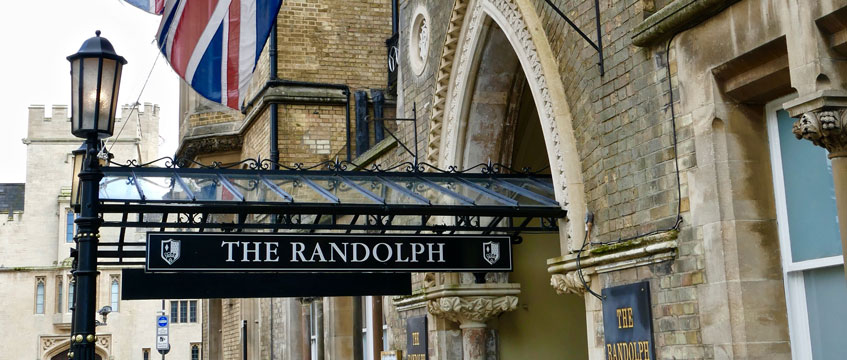Macdonald Hotels case against Lloyds kicks off at the High Court
Macdonald Hotels is suing Lloyds Banking Group’s Bank of Scotland for more than £100m over claims that Lloyds’ Business Support Unit forced it to sell four luxury hotels at a disadvantageous price.
The case kicked off at the High Court today and is scheduled to last around six weeks.
“This is a case about good faith in commercial dealings under English law,” said Tim Lord KC, Macdonald Hotels’ barrister.
Macdonald Hotels is suing Lloyds Banking Group’s Bank of Scotland for more than £100m over claims that Lloyds’ Business Support Unit forced it to sell four luxury hotels at a disadvantageous price.
The case kicked off at the High Court today and is scheduled to last around six weeks.
“This is a case about good faith in commercial dealings under English law,” said Tim Lord KC, Macdonald Hotels’ barrister.
According to court papers, prior to the financial crisis of 2008, Macdonald Hotels had a good working relationship with its long-term banker Bank of Scotland. The bank supported it during its expansion in the 1990s, and the current company was created by a management buyout backed by Bank of Scotland in 2003.
However, following the Bank of Scotland’s merger with Lloyds Banking Group in 2009, the relationship changed as the bank began “aggressively reducing the size of its commercial loan book by requiring borrowers… to pay down debt by selling assets”.
Macdonald Hotels alleges that the bank, through its Business Support Unit, started to “apply pressure” on the company to sell its “most valuable assets”, starting with the Randolph Hotel in Oxford, which Macdonald Hotels regarded as its “headline-grabbing, high performance” hotel, according to Lord.
The company reluctantly sold the Randolph in 2014 to the Strathclyde Pension Fund for £32m and leased it back. Macdonald Hotels alleges that the bank also pressured it into selling the Old England Hotel in Windermere, the Marine Hotel in North Berwick and land at Botley Park in Southampton.
Macdonald Hotels claims it was forced to sell the properties at “the wrong point in the cycle” and during “inopportune market conditions”.
Lord said the bank’s change of approach was like “turning out the lights”. “Almost overnight they went from a collaborative relationship to one in which the bank was bearing down on them seeking deleveraging.”
The change, he said, likely came as a result of Lloyds Banking Group’s strategy of reducing its non-core loan book by two-thirds over five years. Borrowers considered non-core were dealt with by the Business Support Unit, said Lord, which would push for deleveraging and try and terminate the relationship with the borrower.
“This goes to the heart of our complaint,” Lord said. “Macdonald Hotels was not in a financially distressed position. It should not have been put in the Business Support Unit.”
Lord said it would be the judge’s job to assess “what reasonable and honest people” would consider undue pressure and bad faith.
Fundamentally flawed
The bank denies all allegations of bad faith.
“The claim is fundamentally flawed and without merit,” said Lloyds Banking Group’s legal team.
“These proceedings concern the… hotel group’s dissatisfaction with being required to repay its borrowing… in accordance with the terms of two facility agreements.”
In 2010, Macdonald Hotels was “over leveraged and outside of the risk appetite of the bank and the lending market generally”, said the bank’s legal team. “The claimants were also unable to generate sufficient cash, against the downturn in trading that followed the financial crisis, to invest in necessary improvements to a tired hotel estate.”
The bank gave Macdonald Hotels more than five years to reduce its debts and “on a number of occasions, the bank could have triggered a non-consensual insolvency”, said the team. “Instead the bank supported the claimants by giving them more and more time to reduce their debt.”
Macdonald Hotels sold the Randolph, the Old England, the Marine and land at Botley Park “after exhausting the other option”.
“The claimants eventually acknowledged that the only realistic way of reducing their debt and leverage to meet their commitments to the bank was by selling assets,” said the bank’s legal team.
The bank “did not have any conceivable reason to force the claimants – in bad faith or otherwise – to sell their assets”. This was because, until 2014 Uberior Ventures, a unit of the bank, owned a 50% interest in Macdonald Hotels, and “the bank was dependent on the financial health of the claimants being restored in order to ensure they were in a position to pay the circa £290m that they still owed the bank”.
“To have acted in the manner alleged would have been contrary to the bank’s own interests,” said the bank’s legal team.
Macdonald Hotels is claiming a total of £102m plus interest.
Image © Geoffrey Swaine/Shutterstock











